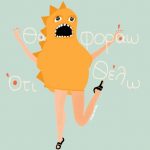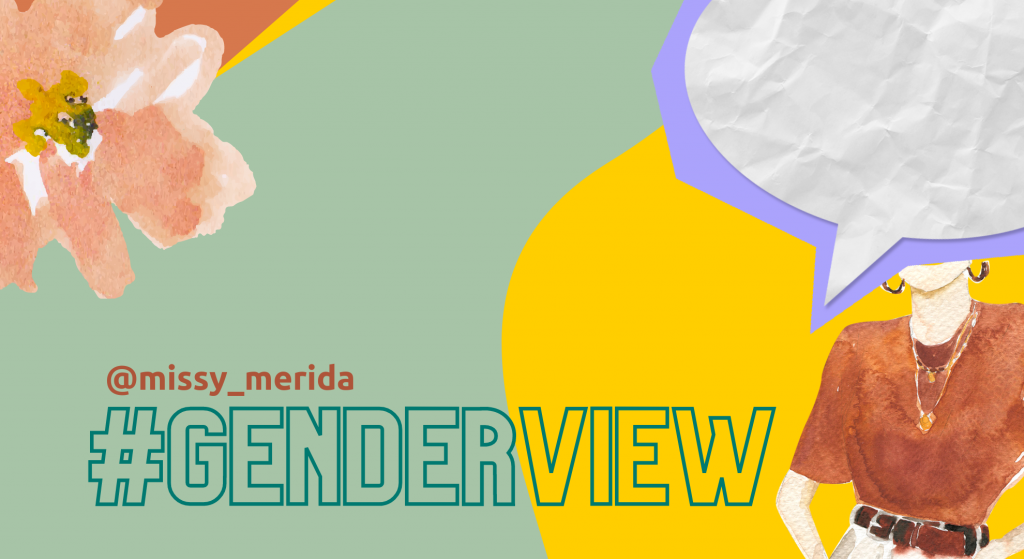Interview by Sofia Konstantopoulou
Elena Karanikolou: She has the nickname of “half a person” (missy merida in Greek) but yet her ideas and sketches paint femininity in its entirety. She talked to us about the taboos she likes to portray in her art.
#Genderviews, Genderhood’s opinion column on free gender expression, reveals Missy Merida’s take on painting daringly.
Your sketches reflect something of yourself. What reflection of your own female identity do you see mirrored in them?
All aspects of the self. The conscious and the unconscious. Fears and scruples, tenderness and need, hope and empathy. The anxieties and the time it takes to realize that there is no time. The present is now and I try to remind myself that.
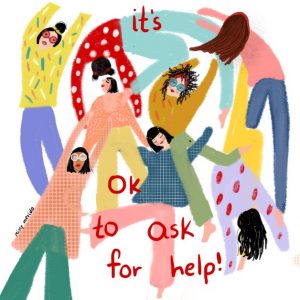
When and why did you start painting female figures?
I started painting many years ago because of my need to find warmth through art, to express myself. From the beginning I have been painting exclusively female figures perhaps because I needed to get even closer to myself and to honor the women I admire daily for their strength, tenderness and multiple roles they take.
Although we see in your illustrations many girls with closed eyes, the last figures have open eyes. What do the eyes symbolize for you?
This big world we are in always seemed too scary and unequal to me and I preferred to close my eyes and dream. But there came a time when I felt the need to open my own eyes and those of my girls so that together we could fight for the better world we dreamed of.

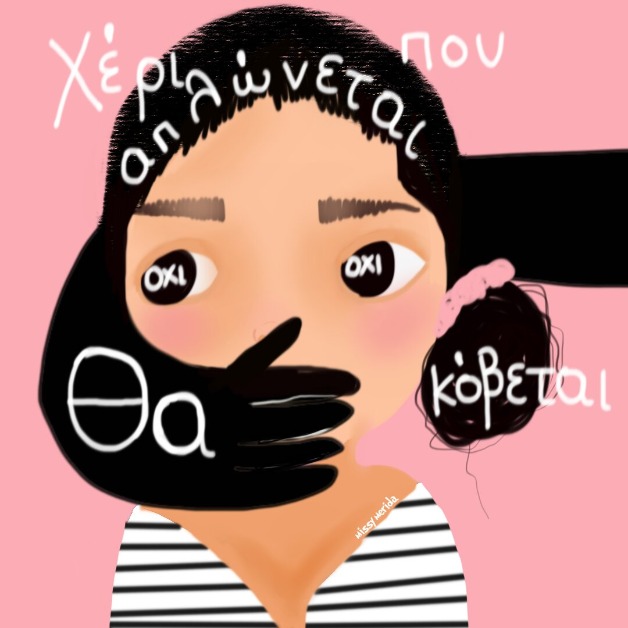
"I often refer to mental health and stigma, racism and body positivity issues that were not 'mentioned' until recently at schools, or even at our own homes."
To what extent do you think that feminism is a taboo subject in Greek society?
As much as I consider myself an optimistic person, as I get older I try to be realistic about things. I feel that something is changing, a roar is coming to my ears and I believe that we are standing up, not alone anymore but all of us together, united. But the world is still an unequal and frightening place and we will have to fight a lot more to put an end to stereotypical thoughts and aggressive perceptions, outdated attitudes. We still have a long way to go before I dare to say that feminism is not taboo in modern Greece.
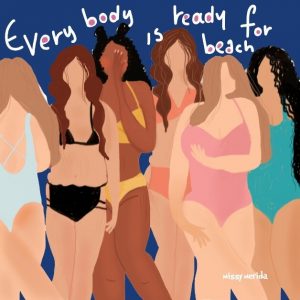
Are there other taboo subjects that you are interested in talking about through art?
I often refer to mental health and stigma, racism and body positivity issues that were not “mentioned” until recently at schools, or even at our own homes. Issues that have been artfully covered up through the years and have haunted us. It’s time to “cleanse” our insides with our voices, our arts and our struggles.
What does feminine beauty mean to you?
The unparalleled strength and fragile balance, a tightrope and her balancing on it perfectly with no labels. She has many faces and stories and red, bubbling blood. The woman is the warmth of this world.
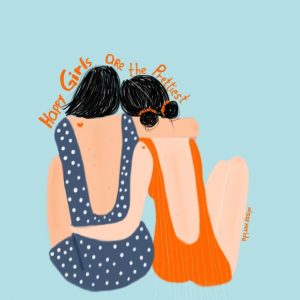
Do you think the power of social media can shape consciousnesses about gender expectations?
I firmly believe that, even if you don’t do it consciously, repetition is the mother of learning. Unfortunately or fortunately, repetition tames.
Have you received any backlash for feminist messages that your illustrations convey?
I have occasionally received some not so polite direct messages on my social media profiles. Clearly my art will be annoying, it has that purpose too. But I’ve never been stopped by this kind of reaction. They make me sad, but they don’t surprise me anymore.
